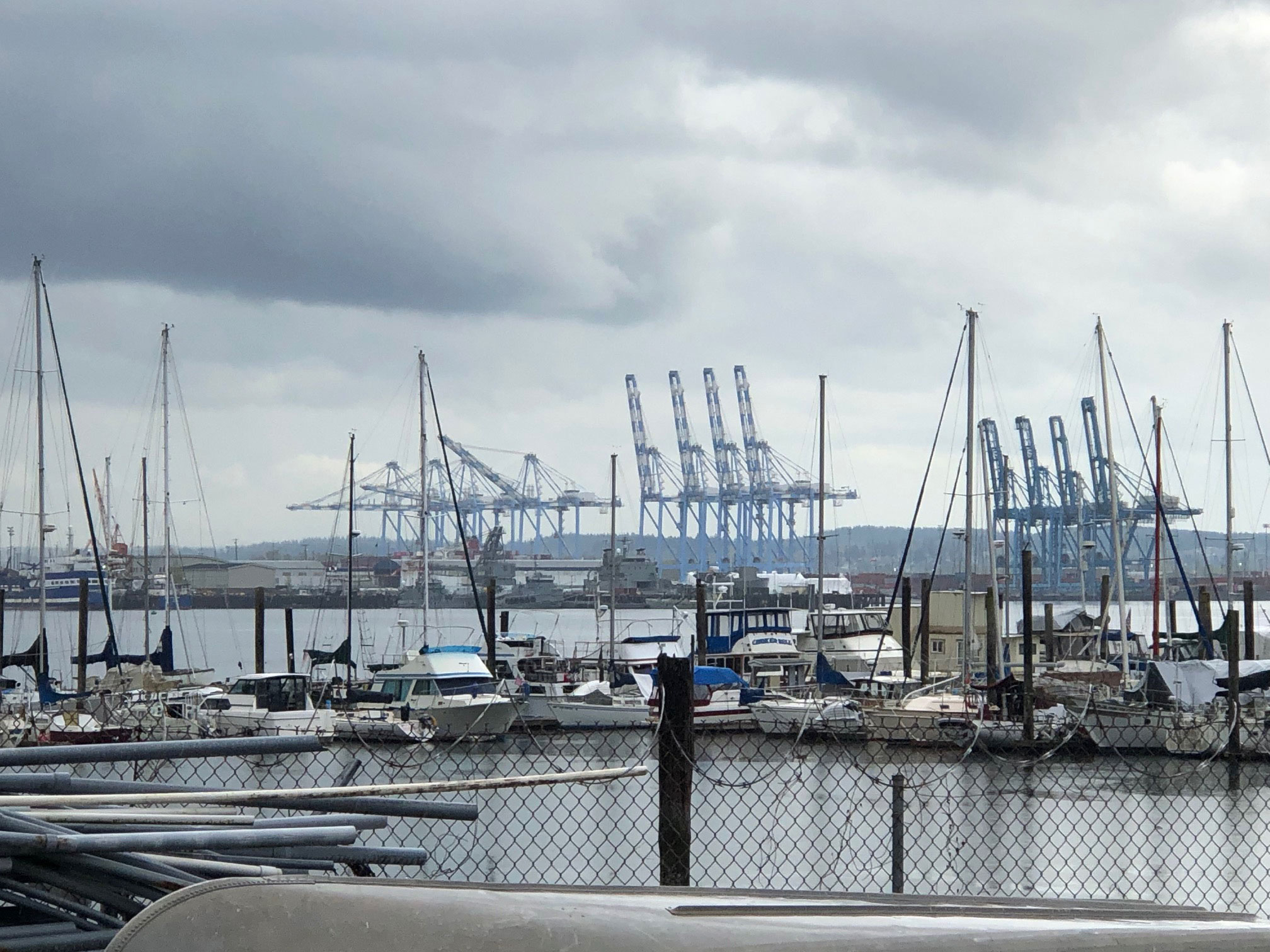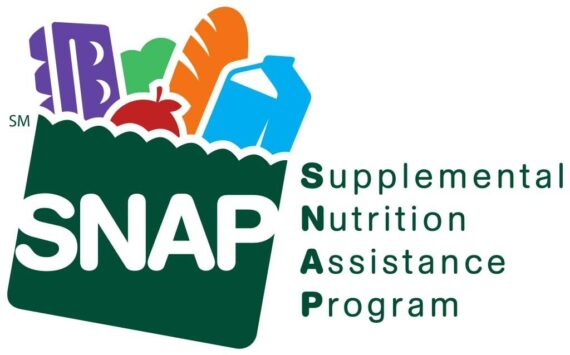The Washington State Legislature adjourned on Sunday, April 28th after approving new laws that allow ports a greater role in environmental and community health initiatives and expanding economic opportunity. Legislative highlights from this session include new laws supporting port-related worker training, progressive environmental policy goals, and infrastructure projects to make regional transportation safer and more efficient.
“Ports not only provide essential trade and travel services to Washington’s most critical economic sectors,” said Port of Seattle Commissioner Ryan Calkins. “Ports also partner with industries, cities, and communities on strategies that advance our shared values. We are changing our own operations, and as a result of new policies from the legislature, can do even more to improve economic equity and promote healthy habitats and communities.
“We were disappointed that the Low Carbon Fuel Standard was not adopted. Enacting a clean fuel standard will improve air quality in some of our communities most burdened by air pollution and support innovative economic investment. We will continue to work with legislators towards clean energy policies that will attract low-carbon fuel producers back to Washington, along with the jobs, energy security, and local air quality benefits that come with it.”
The Port of Seattle emphasizes partnership with other ports, government agencies and public representatives, port-related industries, and community organizations to improve its service to the region. Accomplishments in the Washington legislature were a result of long-term dialogue with these parties and a commitment to make progress on our shared values.
Workforce development
“Ports are community economic development engines and training the next generation of workers is imperative to keeping our communities resilient and our economies thriving. From rural Washington to the state’s urban areas, ports can help young people prepare for good-paying jobs in port-related industries, and we were glad to partner with the Port of Seattle in confirming this priority with the Legislature,” said Connie Beauvais, Commission President at the Port of Port Angeles.
Workforce Training Authority Approved: The Port supported HB 1568, a bill championed by Rep. Mike Chapman (D-24th LD, Port Angeles, Olympia peninsula) gives port districts clear authority to lead in the effort to train the next generation of workers needed to power port-related industries. The Port of Seattle has worked with regional partners on worker training and career-connected learning programs for years, but due to statutory limitations has not been able to fund and fully lead on these critical efforts.
Career Connected Learning Funded: The budget includes robust funding for the Career Connect Washington initiative, an effort that seeks to bring together educators, business leaders, labor organizations, and community groups to develop career pathways that allow students to gain job skills and earn credentials while continuing their education.
Core Plus Funded: Other critical workforce development efforts funded by the Legislature included the Core Plus program, another long-term priority program for the Port of Seattle. The Port joined the Manufacturing Industrial Council, the Association of Washington Business, and a range of labor groups in supporting this funding in the final budget deal.
Environment and energy
“This simple change could have big implications for the transportation sector, including the container terminals on our waterfront. We’ve been glad to work with the Port of Seattle and Northwest Seaport Alliance to help our constituents and ratepayers understand the community benefit of electrifying our transportation infrastructure,” said Debra Smith, General Manager at Seattle City Light.
Transportation Electrification Approved: The Port supported SHB 1512, a bill that gives public utilities in the state clear authority to make investments in transportation electrification. As the Port of Seattle looks at potential shore-power for its cruise terminals and the container terminals operated by the Northwest Seaport Alliance, this tool could lead to collaboration with our utility partners to reduce the emissions from ships in the harbor.
Toxic Clean Up Approved: The Port supported passage of Sen. Frockt’s Model Toxics Control Act (MTCA) reforms, a bill to increase funding and stabilize account management. MTCA helps fund environmental cleanups at contaminated sites, such as the Duwamish Waterway, where the Port is engaged with a range of community and government partners in a lengthy and expensive cleanup. Through MTCA, the state partners with ports and ensures that contaminated sites can be returned to productive use.
Transition from Coal Approved: The Port supported SHB 5116, a bill that would require the state’s utility sector to transition away from coal-generated electricity by 2025, and entirely away from fossil fuels by 2045.


Equity and more
“We were able to provide, from the Port of Seattle, a real-world example of what can be accomplished through changes to Initiative 200. Bringing diversity to our public contracting sector helps ensure that all our communities enjoy the benefit of the economic growth we are seeing in this state, and passing Initiative 1000 will help to accomplish that,” said Ollie Garrett, President at Tabor 100.
Initiative 1000 Approved: This initiative to the legislature, taken up in Olympia after advocates gathered more than 250,000 signatures in support, amends Initiative 200 and permits public entities to engage in efforts intended to expand the utilization of women-owned, minority-owned, and disadvantaged-business enterprises. The Port of Seattle Commission has long supported the repeal of Initiative 200, as part of its commitment to supporting underrepresented groups in its public contracting processes.
Puget Sound Gateway Agreement Approved: Legislation to finalize the funding agreement for the construction of the State Route 509 completion project, part of the broader Puget Sound Gateway program which includes SR 167 in Pierce County, was included in the Connecting Washington transportation package.
Aviation Planning Approved: The Port supported SSB 5370, legislation to create a statewide aviation coordinating commission. This bill is consistent with our long-held policy that the state should begin working with aviation and community partners to determine where future commercial air service demand can be accommodated in our region.
SR 518 Study Extensions Approved: The Port is currently working with WSDOT and community partners on a study of congestion impacts along the State Route 518 corridor. In order to allow for a more comprehensive study, the Legislature agreed to extend the deadline for this study in the transportation budget this year.
Additional budget details: The final budget deal also made investments in facilities that Port views as core the preserving a working waterfront and maintaining public access to the shoreline.
Maritime Innovation Center Funded: Through a partnership with the Department of Commerce and the Governor’s Clean Energy Fund, the Legislature fully funded the state share of the Port’s planned Maritime Innovation Center. This will serve as a hub for new maritime technologies that seek to reduce the environmental impact of the industry while keeping it competitive and maintaining our region’s century-long role as a maritime innovation leader.
Fishing Pier 86 Redevelopment: The final capital budget compromise includes funding for the re-development of the fishing pier at Pier 86, just north of the grain terminal on the Seattle waterfront. This state funding enables a partnership with the Department of Fish and Wildlife and Expedia to re-open the facility and the potential for expanded uses including future marine transit opportunities.
About the Port of Seattle
Founded in 1911, the Port owns and operates Seattle-Tacoma International Airport, Fishermen’s Terminal – home of the North Pacific fishing fleet – and public marinas. The Port also owns two cruise ship terminals, a grain terminal, real estate assets, and marine cargo terminals through its partnership in the Northwest Seaport Alliance. Port operations help support nearly 200,000 jobs and $7 billion in wages throughout the region. Over the next 18 years, the port’s “Century Agenda” seeks to create an additional 100,000 jobs through economic growth while becoming the nation’s leading green and energy-efficient port.
– Port of Seattle









